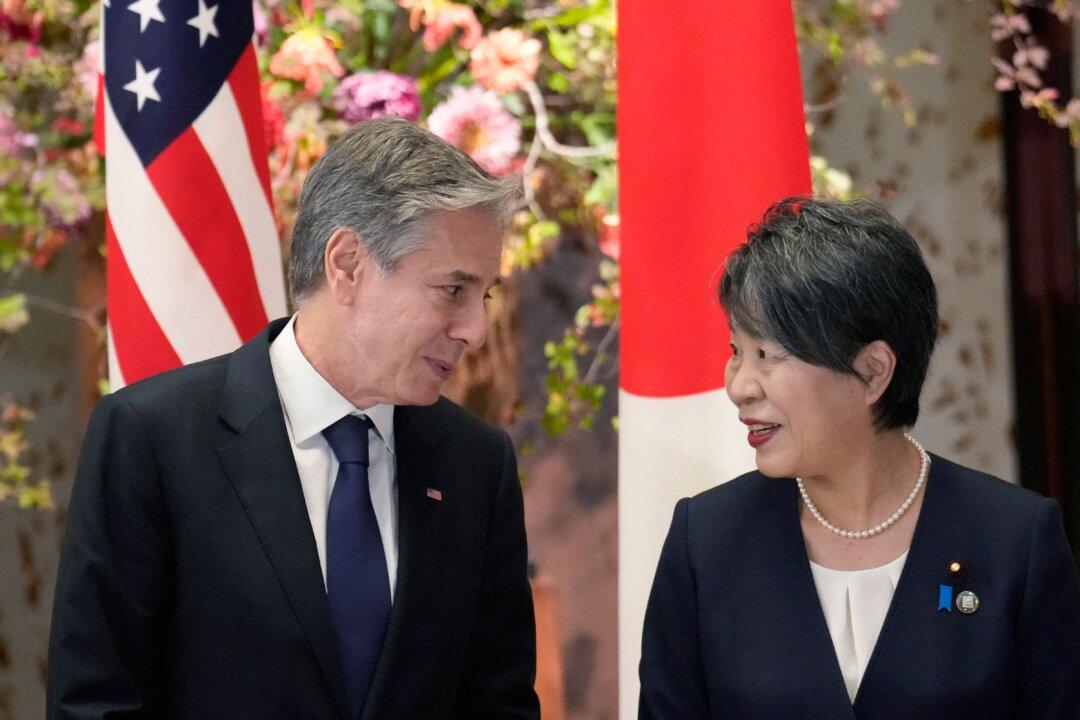The United States and Japan will hold their first ministerial meeting on “extended deterrence” in Tokyo next week amid growing security challenges in the Indo-Pacific region, according to the State Department.
U.S. and Japanese foreign and defense chiefs “will discuss bilateral cooperation to further strengthen U.S. extended deterrence bolstered by Japan’s defense capabilities” at their 2+2 meeting on July 28, U.S. Assistant Secretary of State for East Asia and Pacific Affairs Daniel Kritenbrink said during a briefing.




